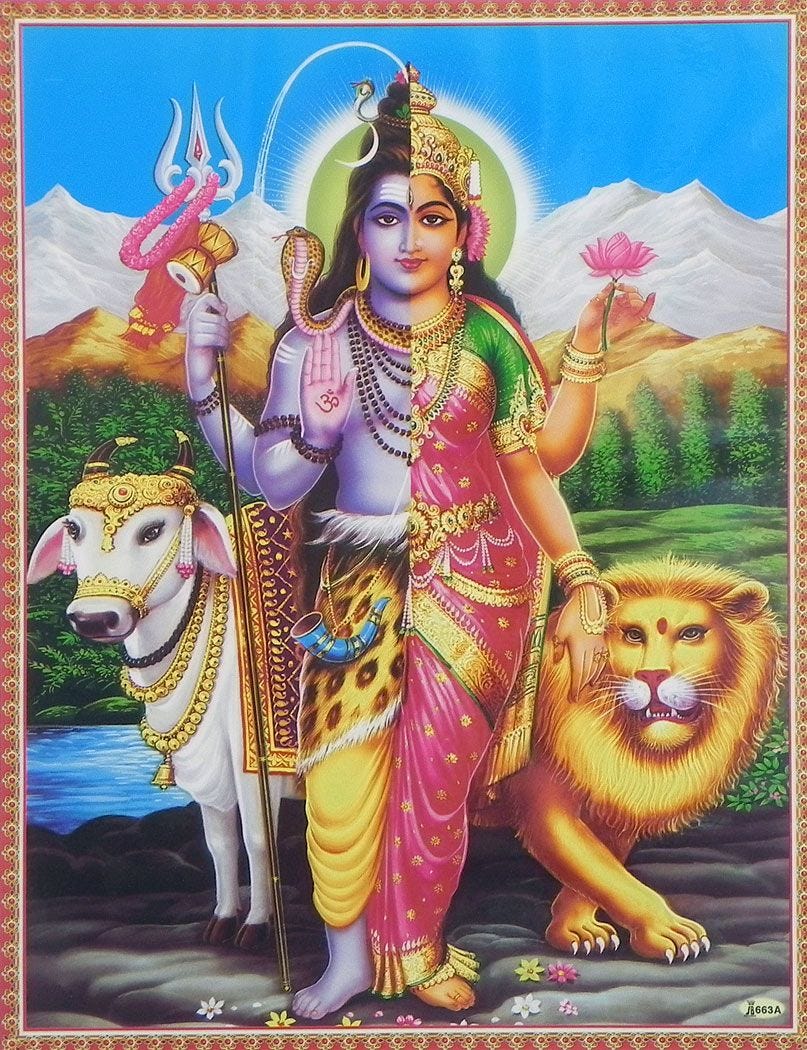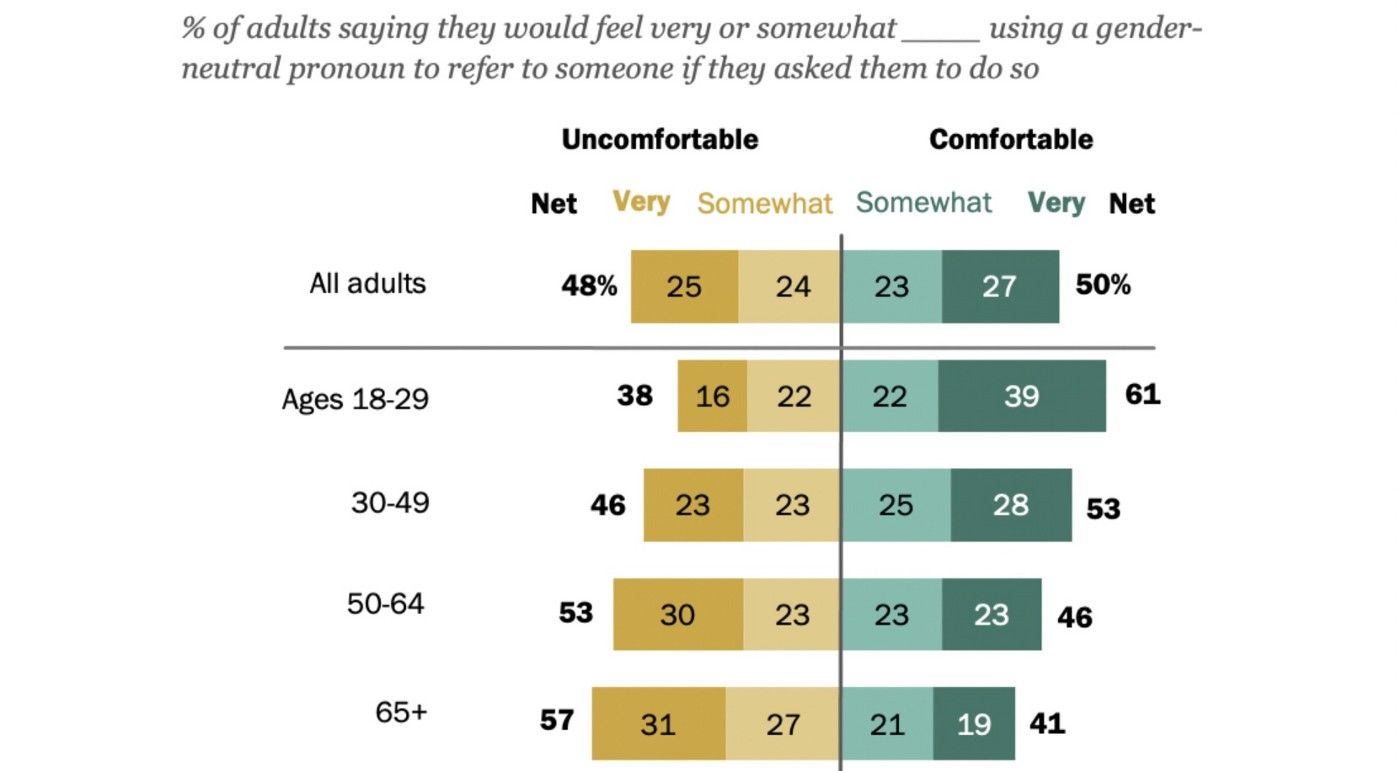Pronouns And Power

The pronoun debate is interesting because learning one other pronoun is nothing for most people. In the Tamil language there’s different pronouns for you, you (respectful), men, women, gender-neutral (respectful), and animals.
Then there’s dozens of terms of address. On any given day I can be called 20 different names (in multiple languages) and I somehow keep this straight. Why do straight western people find one pronoun so hard?
The answer, I think, is power. Pronouns aren’t about words, gender, age, or quantity. They’re about power relations. In other languages this is more obvious (there are ‘respectful’ pronouns) while in English everything is flattened and obscure. But power is always there.
For example, while Tamil has a gender-neutral pronoun just sitting there it’s also a term of respect. You’d use it on teachers or elders. Hence the characters in a film like Super Deluxe call trans people by animal pronouns instead. Which is awful, but at least more honest about the awful reality.
Pronouns are clearly about more than technical meanings. They’re about power relations, something English certainly has but just doesn’t have words for. And so they fight.
Power Languages
In languages like Tamil or Sinhala, power is explicitly encoded into language. We have different terms based on age, ‘respect’, and these map quite directly onto class.
Servants are often called ‘girl’ or ‘boy’ regardless of how old they are. This sounds deranged when you translate it into English (“can your girl make tea?”)—especially when the ‘girl’ is 50 years old—but it reflects the actual power relations clearly. Western languages have the same power relations, they just don’t say it out loud. But power is always there.
Power Plays
In English, especially American English, there’s this illusion that they don’t have class because they speak to everyone the same. Which is yeah, OK, but you still have class. You just don’t talk about it.
America’s servant class is distributed through algorithms, apps, and global supply chains. The country heavily relies on millions of ‘illegal’ people and prison labor kept in cages. Americans are not better because they don’t ‘talk down’ to their servants. In many ways it’s worse because they don’t talk to them at all.
They/Them
It is into this unconscious mess of power relations that the trans debate thrusts itself into. Yes technically it’s about gender, but this maps directly onto power and is a direct threat to power as well. Asking for a different pronoun sounds minor but it actually makes the whole system explode.
When someone says ‘call me they/them’ they are actually asking to be addressed with respect, and that is what certain people do not want to give. The real response, under all the verbosity, is ‘who the fuck are you?’ The real rage is about conceding power, not pronouns.
In English this is a messy debate because they literally don’t have words for it and start talking about biology and shit when it’s really sociolinguistics. On the other hand the conflict would be quite clear in Tamil. If you asked the older generation to call certain younger, marginalized people இவர (literally ‘respectfully gender- neutral’) their fucking heads would explode, and everyone would know why.
This is what’s invisibly happening in American English. Mostly young people are asking older people for respectful terms of address, and the freedom to chose their own. They’re asking for power. Of course there’s conflict.
Americans make most things about ideology, but most people aren’t having that many fucking ideas. We’re just social animals, and we react viscerally when the pecking order is changed. This often breaks linguistically along age, and you can see that in how young and old Americans feel:

Young people are way more OK with using a gender-neutral pronoun, but they also have no particular power to give up. For many young people it’s ¯\_(ツ)_/¯.
Old people, however, would have to give something up. It’s a bit like an older Tamil person calling a child ‘Sir’. It’s just a pronoun, yes, but it challenges power relations. That is both the point and the problem.
Pronouns And Power
If you don’t have the words to describe what’s happening it’s confusing, but in more class-conscious cultures the problem is very clear. If I started using the நீ pronoun on my wife’s grandmother I might get a slipper thrown at me. If I spoke to monks informally I’d be run out of town. Of coursepronouns matter. Pronouns are power.
It’s only because American English hides power relations that this looks like some unexplainable earthquake, but if you understand the plate tectonics of linguistics, the conflict is more clear. The people asking for different pronouns are actually asking for power. This has never been conceded without a fight.
*As a note, I don’t speak Tamil (yet). My wife does [BUT SHE BEARS NO RESPONSIBILITY FOR MISTAKES I’VE MADE IN THIS] and I’ve just been trying to learn it for months now.